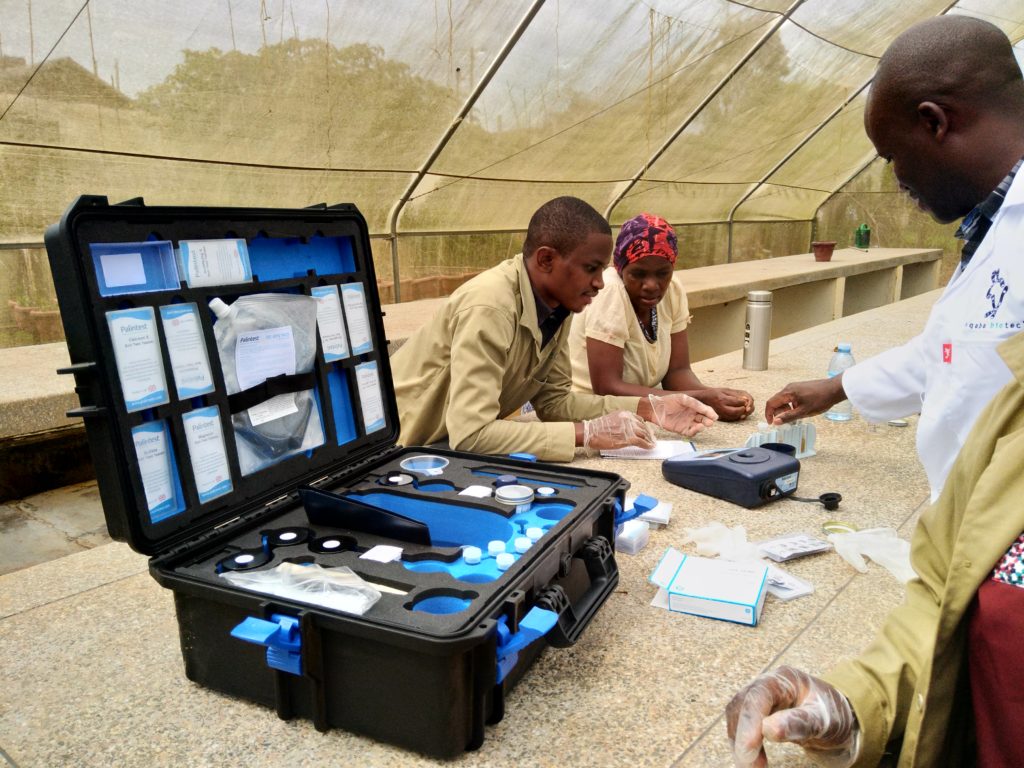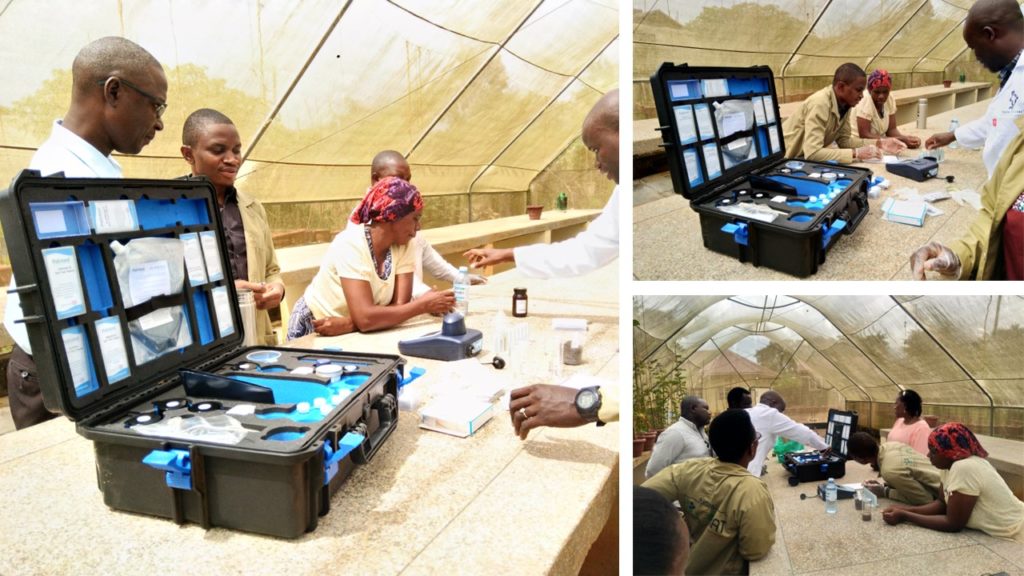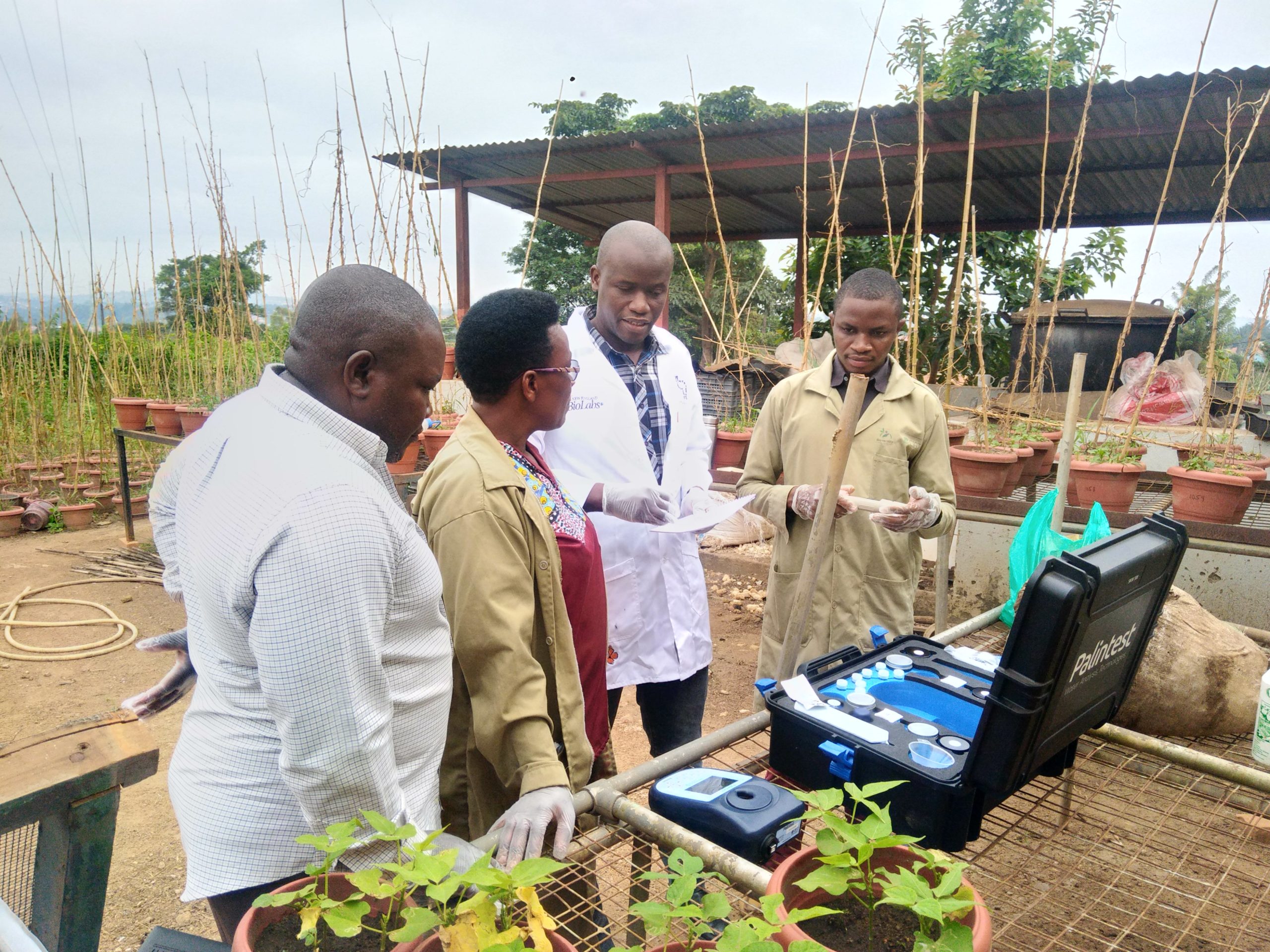Soil analysis is important in agriculture because it determines the inputs required for efficient use of soil for crop production. A proper soil test, therefore, ensures that the right fertilizer will be applied to the soil to meet the optimum nutrient requirements of the crops considering the nutrients already present.
A balanced soil pH will allow your plants to take up the nutrients from the fertilizers they are applied to. Acidic soils make the nutrients un-available. If your soil is acidic, adding more fertilizer to your farm will not yield because plants will be starved of these nutrients because of the low pH.
A soil test is useful in the diagnosis of plant culture problems, and it is also an important tool in improving the soil nutritional balance. Soil tests will also save the farmer some money because they will apply the correct amount and type of fertilizer needed by the plants. The most common soil test performed is soil pH, which is a measure of soil acidity. Soil pH is an important factor in plant growth because it affects nutrient availability to the plants. When pH is maintained at the proper level for a given plant, nutrients are at maximum availability. Most plants prefer a soil pH between 6.0 – 7.0.
Soil analysis usually requires that samples be delivered to a laboratory where tests are performed to determine the levels of minerals and other soil components. Unfortunately, laboratory analysis of soil samples in most African countries is expensive and the turnaround times are uncertain.
The Alliance of Bioversity International and CIAT recently received the SKW500 Soil testing platform, a mobile and high precision state-of the art soil testing platform donated by the Cambridge Africa through its Cambridge-Africa’s Alborada Research Fund donated by Dr. Warren Arinaitwe (PhD). The kit was received by Dr. Clare Mukankusi, Global bean breeding lead at the Kawanda Agricultural Research Institute, Central Uganda. This platform is a gamechanger in three ways; it will provide researchers and farmers with real-time, reliable, and cost-effective soil diagnostics. Currently, Uganda has less than five functional soil testing service providers, which are unaffordable and unreliable.
Allan Ssekemata, one of the specialists trained on using the innovative soil testing platform shared. “The device is very robust and versatile in the sense that it can withstand the rough conditions of the field and it can also be used in the laboratory. Its greatest strength lies in minimum sample preparation steps which minimizes errors, the number of soil parameters it can assay, and the short turnaround to get result. However, the reliability of the results is heavily dependent on the way the soil is sampled from the field and so there is need to have soil sampling devices like soil augers.’’

Getting a good report is however the first step to a good harvest. The platform will also offer robust evidence that users can pivot their crop selection and fertiliser application decisions. Currently, most farmers use guesswork to determine what fertilisers to apply on their farms and end up using excessive amounts of all-purpose fertilisers, an approach that is wasteful and costly. Thirdly, data gathered from distinct farm points across diverse farming systems will be helpful in future data-driven investments in crop improvement, such as artificial intelligence.
The platform is hosted by the Alliance and is available to farmers free of charge. This service is expected to benefit 15,000-25,000 farmers in various agro-ecologies of Uganda.
Recently the team trained some technician on hoe to use the soil testing kits.


